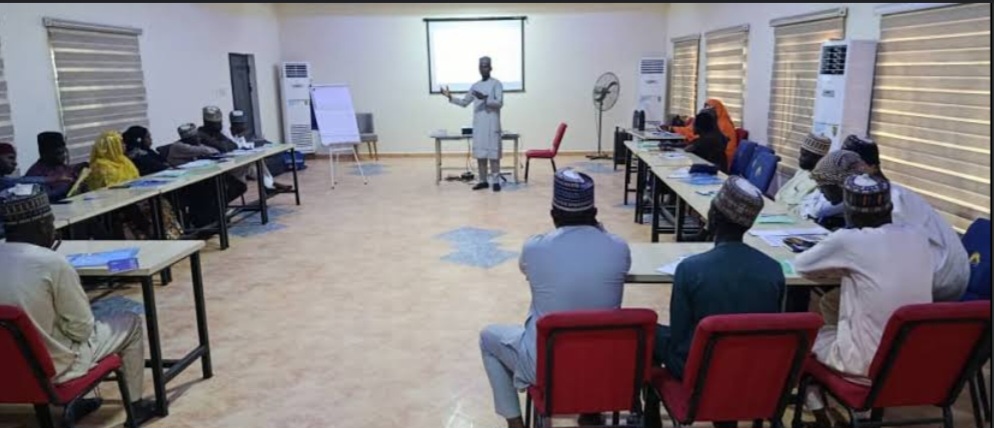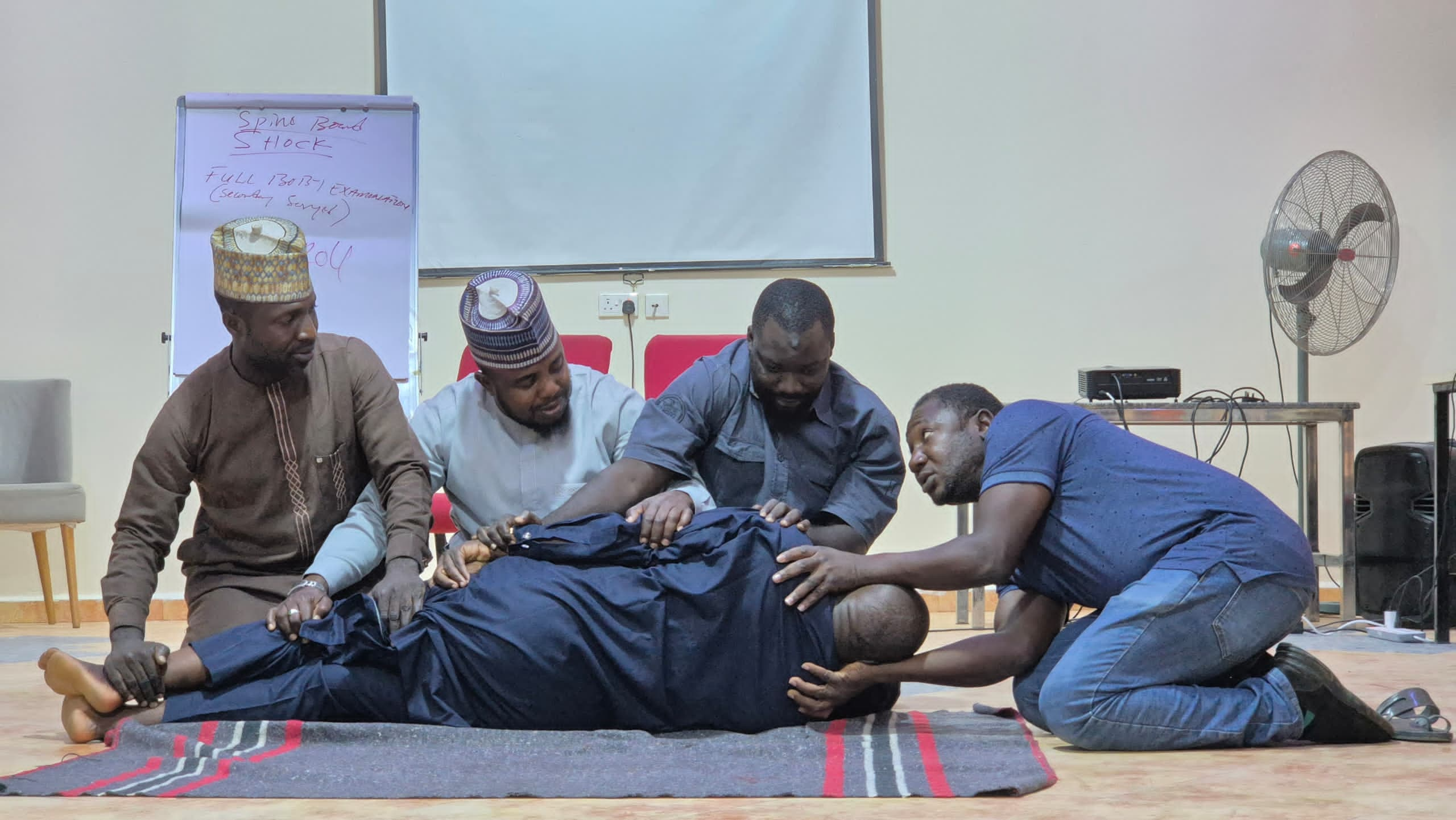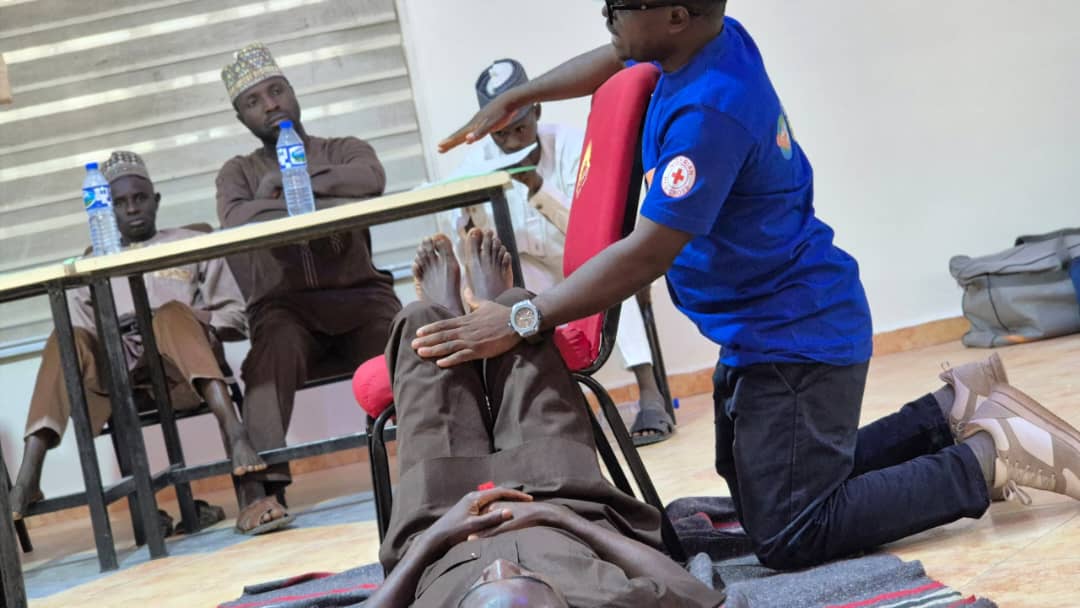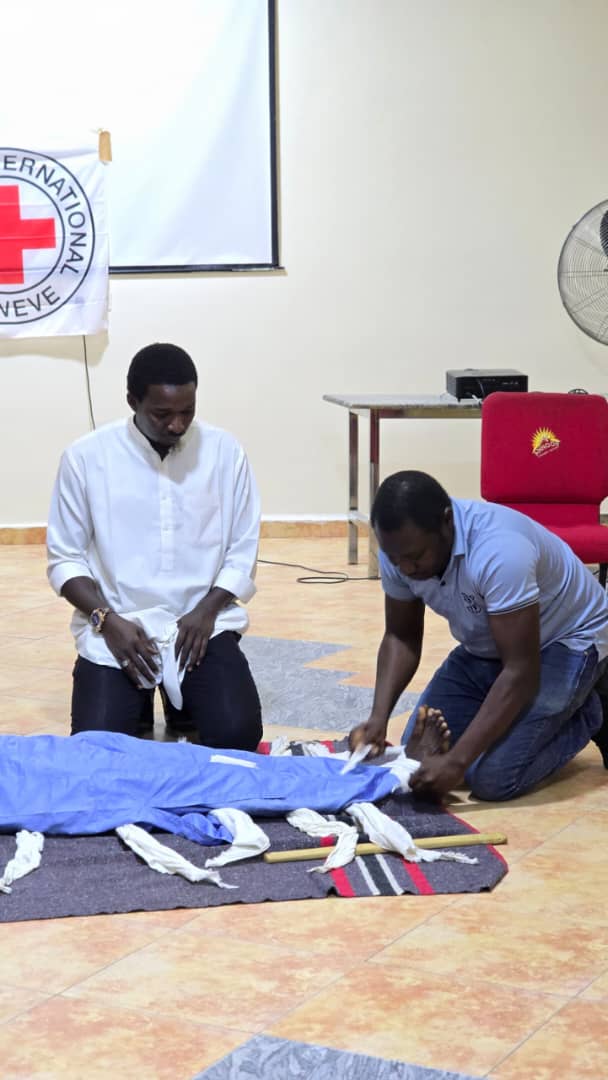
Iliyasu Abdullahi Bah
The International Committee of the Red Cross (ICRC) on Thursday concluded a three-day workshop for journalists in Yobe State, aimed at strengthening emergency response and safety skills amid recurring disasters and insurgency in the Northeast.
The training, held in Potiskum, was designed to equip media practitioners with practical knowledge to safely and effectively support their communities during disasters, armed conflict and other humanitarian emergencies.

Opening the workshop, the ICRC Communications Officer in Yobe State, Mr. Usman Kundili, reiterated the organisation’s mandate to provide impartial humanitarian assistance to victims of conflict and disasters, irrespective of their background or affiliation.
He stressed that the ICRC is a neutral body guided strictly by humanitarian principles and not by religious or political interests. “The ICRC was not founded on religious grounds,” Kundili said, adding that the organisation operates on the principles of humanity, impartiality, neutrality and independence.
The facilitators, Dr. Godfrey Shaibu and Dr. Samaila Garba, trained participants on first aid and triage, teaching them how to render immediate medical assistance to injured persons before the arrival of professional responders. The sessions also covered risk assessment, movement through checkpoints and safe reporting from active conflict zones without escalating tension or exposing journalists and civilians to danger.

According to Dr. Shaibu, journalists often arrive first at scenes of disaster or violence and can play a life-saving role when equipped with basic rescue skills. “A journalist with emergency response skills becomes an asset to the entire community, especially during crises,” he said.
The workshop underscored the growing role of journalists in conflict-affected areas not only as reporters but also as contributors to community safety and resilience. As insecurity and humanitarian challenges persist in Yobe State, the ICRC said such capacity-building initiatives remain crucial to strengthening local preparedness and response.

